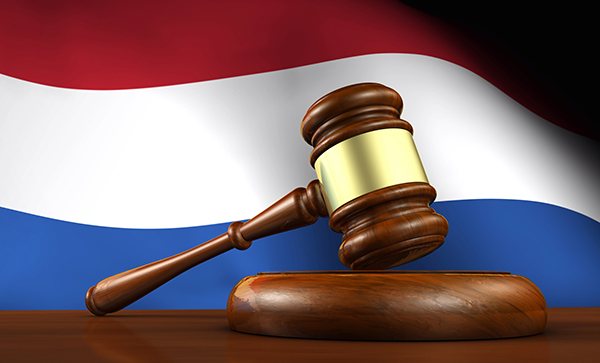According to the Comparative Constitutions Project (CCP), there are few constitutions that last longer than a few decades, and the Dutch Constitution (1914) is known as one of the oldest in the world. Defines as the set of principles and rules by which a country or state is organised, a constitution can express its ideals, identity and values, and one of the reasons why the Dutch Constitution has survived as long as it has, is its ability to evolve over time and make it more inclusive. That may not be a surprise to anyone who knows anything about the Dutch psyche and its history of tolerance and adaptability (take its battle with water).
The CCP also cites the Netherlands’ ability to make use of international law as an independent source of coercion as another strength of its constitution. This is considered helpful in avoiding ‘majoritarian domination’, and according to the Dutch government website (overheid.nl), citizens in the Netherlands can appeal to a number of these internationally established rights directly in a Dutch court.
Rights and duties
One of the current fundamental rights in the Dutch Constitution legally is equal treatment of everyone living in the Netherlands,regardless of religion, philosophy, political opinion, race, or gender. Other rights guarantee citizens free practice of religion or belief; to elect members of representative bodies or be elected to them; and to unify with other people, hold meetings and demonstrate. Freedom of the press, respect for an individual’s privacy, inviolability of the physical body, and free choice of employment and education are other examples of what is safeguarded in the current constitution.
There are also duties. For example, the Dutch government has an obligation to promote employment as well as the country’sprosperity and habitability. It must secure the protection of the environment and public health and the right conditions for social and cultural development. There must also be sufficient educational opportunities for everyone. Dutch citizens too have duties imposed on them by the constitution, such as compulsory education. They must also comply with traffic rules, and they have an obligation to pay taxes and to act as a witness in court.
Historic revisions
There have been quite a few revisions in the history of the Dutch Constitution. For example, changes in 1917 made all men over the age of 23 eligible to vote, and the website of the Dutch Constitution (denederlandsegrondwet.nl) describes how schools based on a certain religion or philosophy became entitled to the same financial support as public education in that year.
If we go back even further, it was only a year after the constitution of 1814, when the United Netherlands had become independent from France, that it provided for the merger with Belgium into one kingdom. The constitution of 1840 then led to the separation of Belgium.
Moving with the times
In 1983, several major changes were made, such as modernisations of certain texts. Provisions were added on employment, social security, environment and health care. A ban on the death penalty was also introduced. Revisions in 2022 and 2023 have further outlawed discrimination in terms of disability and sexual orientation, and the secrecy of correspondence now also applies to digital messages and social media. Dutch people abroad can now also vote for the Dutch Senate.
New changes in the works are a proposal for the right to respect for the family and family life. In addition to protecting a family’s economic, social and cultural values, it is proposed that all children should have the right to know their biological parents – for example if they are adopted.
In April 2021 there was a televised debate about the future of the Dutch Constitution. According to its co-organiser, the Montesquieu Institute, few Dutch citizens are aware of their constitution, and the debate raised questions such as whether a new Dutch constitution is needed, whether citizens should be involved in a revision, and whether the ‘constitutional literacy’ of citizens, politicians and judges should be improved. Still, experts say that even though the Netherlands has suffered its fair share of invasions and internal conflicts, it is thanks to its adaptability that the Dutch constitution has stood the test of time.
Written by Femke van Iperen
